Patient Empowerment Program: A Rare Disease Podcast
Join the nano-rare disease community! Interviews features leading physicians, scientists, biotech experts, and patient advocates. Lessons teach core concepts about drugs. Our host Dr. Crooke has led the creation of antisense technology and his foundation, n-Lorem, is using this powerful technology to discover, develop, and provide personalized experimental antisense oligonucleotide medicines to nano-rare patients for free, for life. n-Lorem is a non-profit organization established to apply the efficiency, versatility and specificity of antisense technology to charitably provide experimental antisense oligonucleotide (ASO) medicines to treat patients (less than 30 patients) that are the result of a single genetic defect unique to only one or very few individuals. The advantage of experimental ASO medicines is that they can be developed rapidly, inexpensively and are highly specific. n-Lorem was founded by Dr. Stan Crooke, who founded IONIS Pharmaceuticals in 1989 and, through his vision and leadership, established the company as the leader in RNA-targeted therapeutics. The podcast is produced by n-Lorem Foundation and hosted by Dr. Stanley T. Crroke, who is the Founder, CEO and Chairman. Our videographer is Jon Magnuson. Our producers are Kira Dineen, Jon Magnuson, Kim Butler, and Amy Williford. To learn more about n-Lorem, visit nlorem.org. Contact us at podcast@nlorem.org.
Episodes
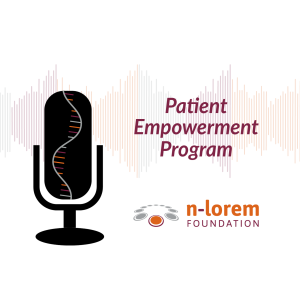
Wednesday Jun 14, 2023
Wednesday Jun 14, 2023
Brace yourself for a deep dive into the various categories of lung disease. Obstructed airways and restricted blood flow pose significant risks to your body. So, learn preventive measures to safeguard your respiratory health. From pneumonia to the disruption of pulmonary blood flow, we'll explore the different culprits that block the flow of air and blood! On this episode we discuss:Obstruction of the airways due to smoking, cancer, infectious diseases, etcObstruction of pulmonary blood flowObstruction of gas exchangeInterference with the inflation and deflation of lungs
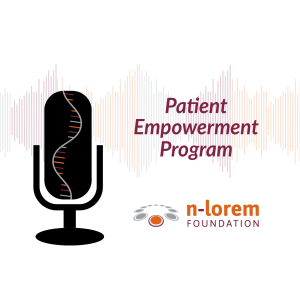
Wednesday May 31, 2023
Wednesday May 31, 2023
Let's take a deep breath and fill our lungs with air. Ahh, doesn't that feel good? Our lungs are responsible for taking in oxygen from the air we breathe and distributing it to organs throughout our bodies and then ridding those organs of carbon dioxide. Get ready to dive into a fascinating episode on our lungs and how they protect us against particles, toxins, and infectious organisms in the air we breathe. The tinier the foreign particle, the more harmful they are! Let's explore the superhero-like abilities of these incredible organs, our lungs.
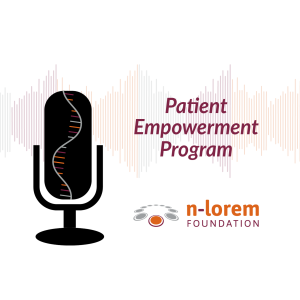
Wednesday May 17, 2023
Wednesday May 17, 2023
May marks a year of podcasting for us, and we’re thankful for all those who have participated and the growing number of people who have listened to the podcasts. We are pleased with the overwhelming support for the podcast and the willingness of our partners and patients to share their stories.We launched our Patient Empowerment Program with the purpose of building a nano-rare community and establishing a forum in which the voices of patients, advocates, and experts can come together focused on the nano-rare patient. We’re happy to report that we believe we have done just that – create a forum for our nano-rare community.To celebrate one year of the Patient Empowerment Program, we compiled clips from previous interviews to form a special podcast episode centered around “community” and it really does take a “rare” community to do what we do.
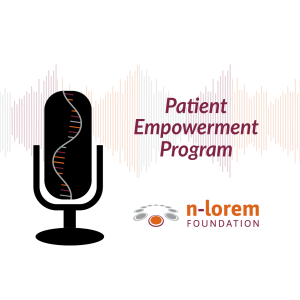
Wednesday May 03, 2023
Wednesday May 03, 2023
This episode is proudly sponsored by our partner, Alnylam Pharmaceuticals, the leading RNAi therapeutics company. When Stan Crooke ran Ionis and John Maraganore ran Alnylam, they were partners that turned into rivals — and not always friendly ones — as they persevered to pursue an entirely new therapeutic space; RNA-targeted drug discovery and development. Now, the pair of drug discovery titans have united once again in support of Dr. Crooke’s n-Lorem Foundation—working to provide personalized medicines to the rarest of rare disease patients (nano-rare) using the antisense oligonucleotide (ASO) technology Stan led the creation of at Ionis. In this episode, Stan has a conversation with Dr. John Maraganore about John’s past, their former rivalry, and the optimism shared between the two with respect to a better future for nano-rare patients.On This Episode We Discuss:- Being a dream merchant and driving a dream into a real therapeutic platform- Founding of Regulus and the synergy between Ionis and Alnylam throughout the years- What happens when two very competitive CEO-scientists have competing drugs- Overcoming their differences- Giving hope to a patient and their family with nano-rare diseases is powerful- Saving the world one life at a time- Bringing ASO and RNAi technologies together to collaboratively help nano-rare patients- A sustainable non-profit model?- Hope – a powerful thing to lose and an important thing to recover
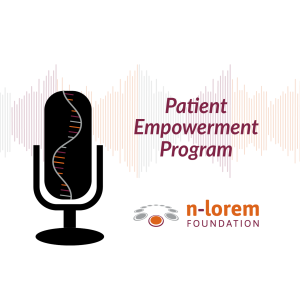
Wednesday Apr 19, 2023
Wednesday Apr 19, 2023
Amber Freed and Shanna Tolbert join n-Lorem founder and CEO, Stan Crooke, for the first ever Patient Empowerment Program Q&A episode. Amber and Shanna are two nano-rare patient mothers and rare disease advocates who have experience with the n-Lorem pathway to treatment as caregivers. Through their experiences, and by canvasing others in the nano-rare community, they’ve compiled questions aimed to help current and potential n-Lorem patients and their families become more knowledgeable about the process, receive advice, understand side effects, and more! Stan sits down with these patient families to have a conversation and together address questions from the nano-rare community. Question Bank:- How do you apply to be an n-Lorem patient and who do you need on your team to help? 05:26 - How does the Foundation assess cases? 05:26- Once a patient is accepted, what is the best way to track the progress of the ASO program? 12:45- Any advice for when seeking information from a research physician who isn’t communicative? 14:05- How often should a patient expect to hear communication from a research physician? 15:50- What is hydrocephalus, and should patients be concerned about the side effect? 19:30- If side effects occur in treated patients, will subsequent patients be notified in real time? 30:55- What is the difference between an ASO and gene therapy? 33:55- How is n-Lorem defining an “optimal ASO”? 37:20- Can n-Lorem help patients who are severely advanced in their disease? 44:10- How can treating one person can lead to breakthroughs for many more? 39:40- What is Stan’s favorite success story from his career? 46:20
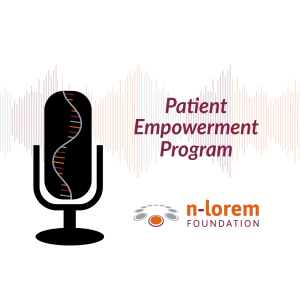
Wednesday Apr 05, 2023
Wednesday Apr 05, 2023
The creation of a drug consists of a copious and complicated series of projects that are all intertwined. Andy Mehrotra, CEO of Unipr, joins the Patient Empowerment Program to discuss how Unipr’s AI based cloud program, project, and portfolio management platforms allow organizations like n-Lorem to quickly analyze data to inform program management. Today, n-Lorem effectively manages more than 90 accepted patient programs thanks to help from Unipr. Discovering locations where productivity can be increased while maintaining quality in every step is critical to treating as many nano-rare patients as possible. On This Episode We Discuss:Andy’s upbringing among physicians and pharmaceutical entrepreneurs Traveling the world to launch Humera Baring the frigid Boston winters at MIT Inspiration to found Unipr How biotech and pharmaceutical organizations can use Unipr to increase efficiency The partnership between Unipr and n-Lorem Unipr’s focus areas: Increasing the probability of success, decreasing the operational costs, and decreasing the cycle time for drug development Why Andy would donate himself to help n-Lorem
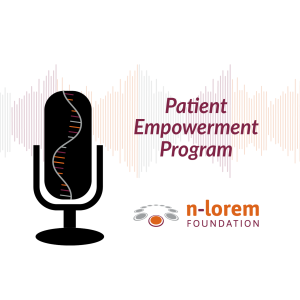
Wednesday Mar 22, 2023
Wednesday Mar 22, 2023
Manish Raisinghani joins the Patient Empowerment Program to discuss how Target ALS fosters collaboration between academia and industry to research and accelerate the fight against ALS. Target ALS has funded over 50 collaborative projects. Greater than 50% of which have had an industry partner and over 60% have resulted in an ongoing drug discovery program. From their Innovative Ecosystem, 6 clinical trials have emerged. Target ALS’ commitment to fight all forms of ALS, no matter how rare, is evident in their founding support of Silence ALS, an initiative that aligns Columbia University and n-Lorem to offer an integrated solution to identify, support and potentially treat nano-rare ALS patients. Target ALS hopes that one day, no patient, no matter how rare their form of ALS, is left behind. On This Episode We Discuss: Target ALS’ innovative model Accelerating ALS research through collaboration How a single nano-rare study can inform the ALS research landscapeThe importance of understanding the fundamental biology behind ALS Committing to fight all forms of ALSTarget AlS’ support for n-Lorem and Columbia University’s Silence ALS Initiative
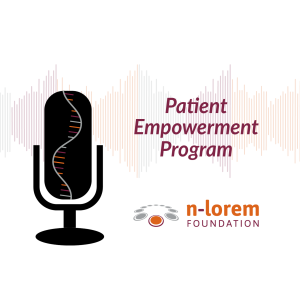
Wednesday Mar 08, 2023
Wednesday Mar 08, 2023
Regardless of the circumstances, life finds a way! Jurassic Park got that one right. Cells need to live and depending on the conditions they will use one of two systems that take nutrients, break them down and use that process to generate energy. That energy is needed to sustain life – hence why it is called The Energy of Life. All the order that you see in the night sky, like planets, star clusters and galaxies, are due to an incredible amount of energy in the universe, creating order out of chaos. The amount of chaos and disorder is measured in entropy. In this episode, the energy of life, entropy and how we convert, store and use energy is explored.Visit www.nlorem.org
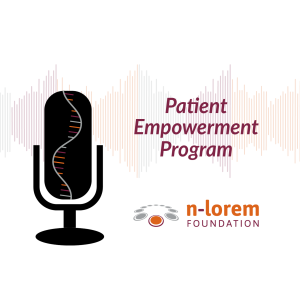
Wednesday Feb 15, 2023
Wednesday Feb 15, 2023
Dan Doctoroff joins the Patient Empowerment Program to talk about his mission to support a world where everyone with ALS lives. Dan is the former NYC deputy mayor for economics and former CEO of both Bloomberg L.P. and Sidewalk Labs. In this episode, Dan discusses his family’s battle with amyotrophic lateral sclerosis (ALS), his own inspiring story of how his diagnosis completely changed his outlook on life and his work with the foundation he started, Target ALS. On This Episode We Discuss: Dan’s inspiration to bring the Olympic Games to NYC 3 things he learned as a CEO Dealing with the reality of being diagnosed with ALS Shifting his perception of life How ALS has impacted his bloodline Scaling up Target ALS and fighting for the lives of every ALS patient
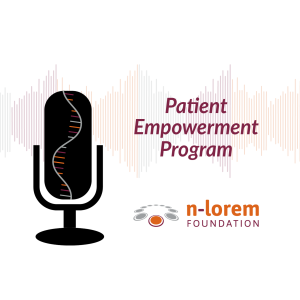
Wednesday Feb 01, 2023
Wednesday Feb 01, 2023
If your car’s oil filter is clogged, it’ll lead to severe issues within your engine. The same goes for the blood filters of your body... but worse. The kidneys filter water-salable waste from the blood. As kidneys fail, waste builds up. A blockage in your kidneys may cause a heart attack, stroke, or kidney failure. Detecting kidney disease early on can save lives! While kidney disease isn't reversible, it can be treated to slow or stop the progression of the disease.n-Lorem is accepting nano-rare kidney patients for treatment. Information about the application process and can be found at www.nlorem.org/access

